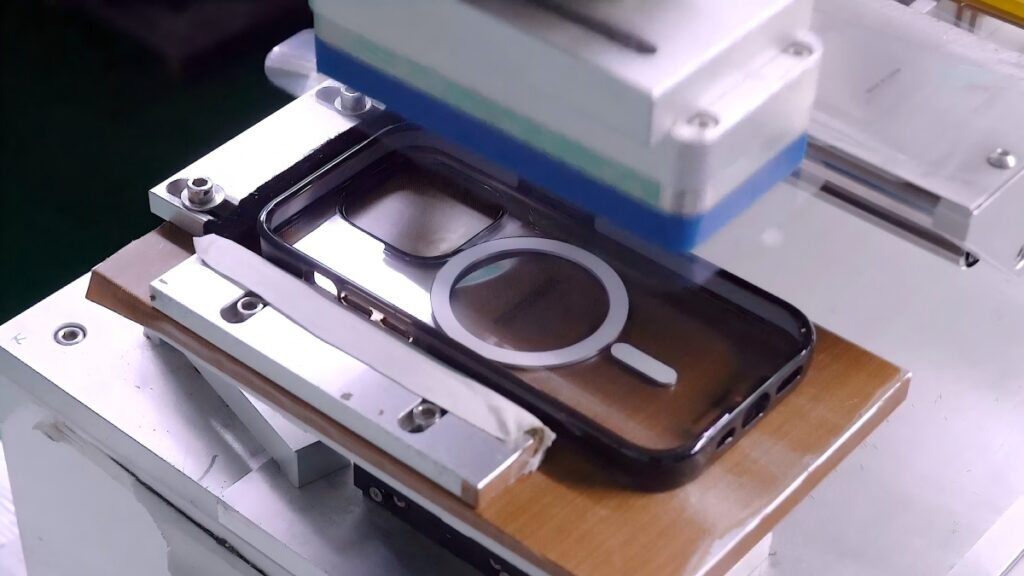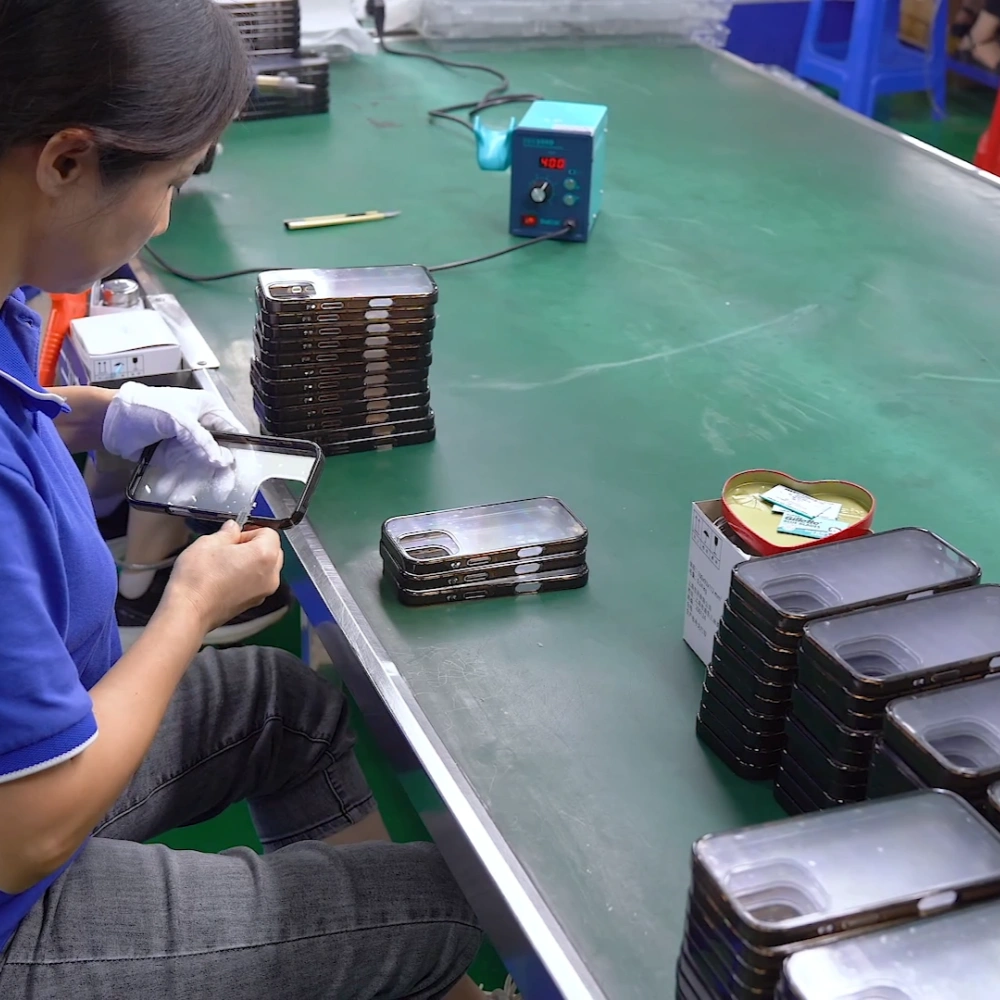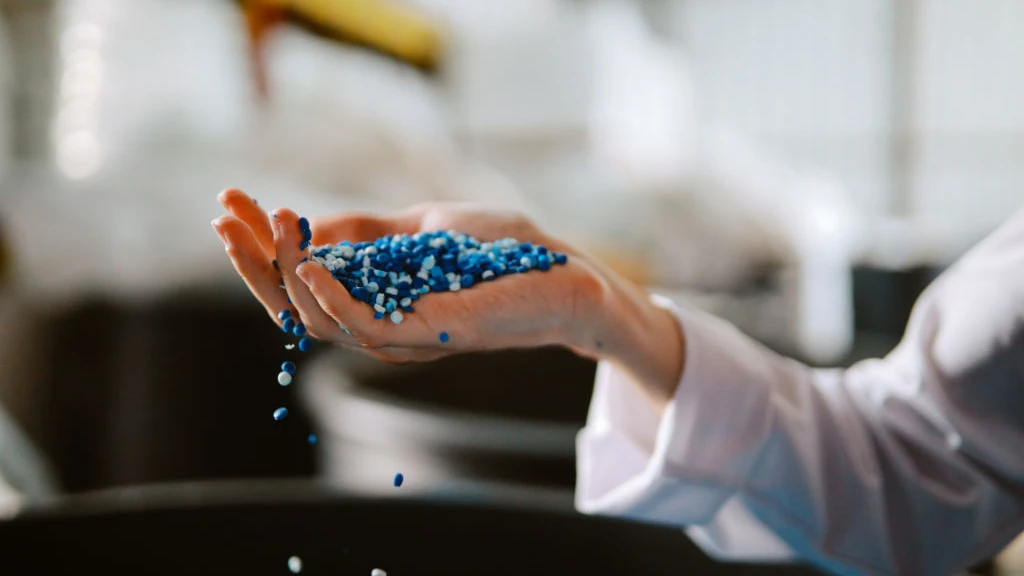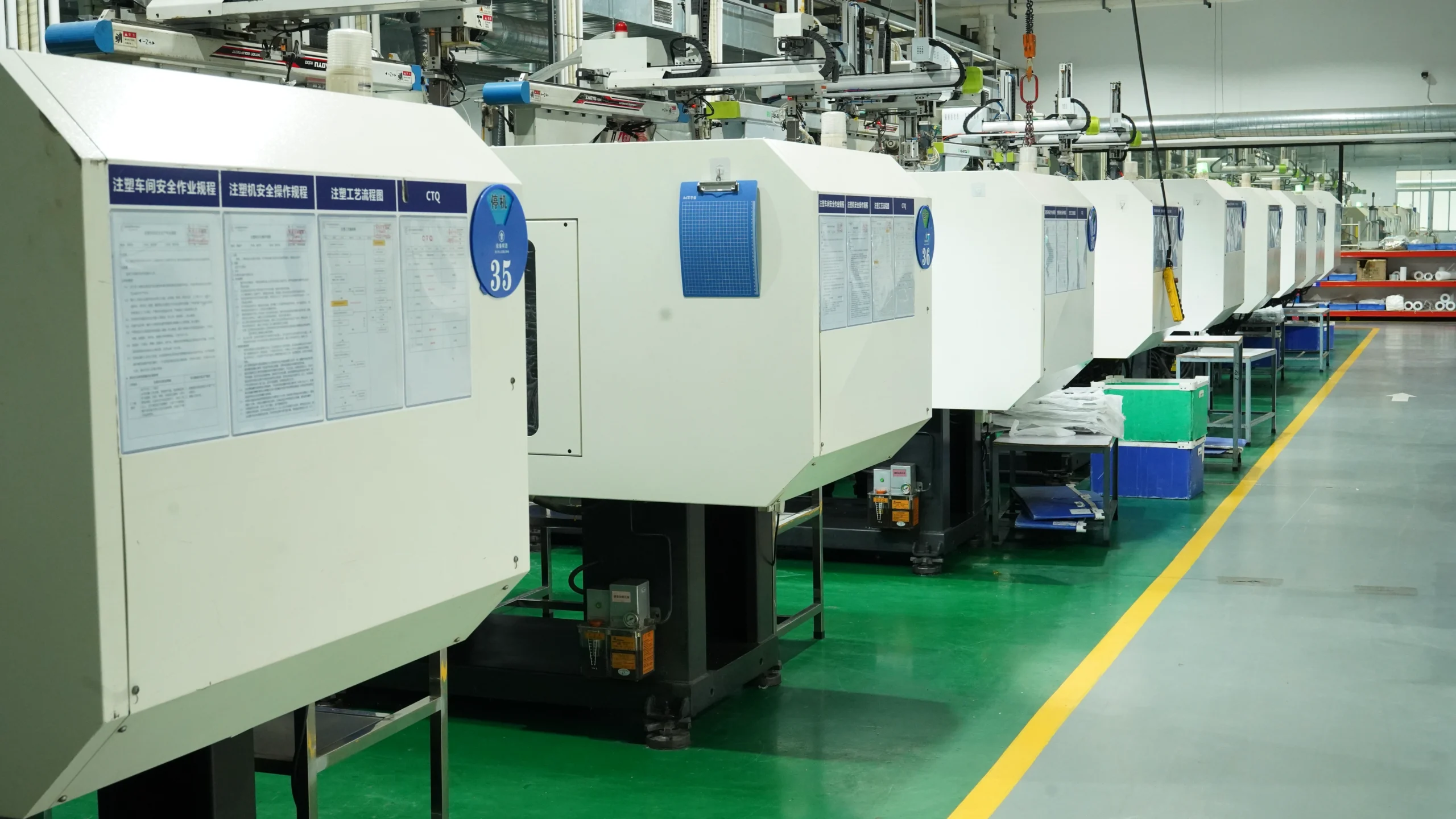In today’s fast-paced digital age, phone cases are not only essential for protecting devices but also serve as a fashion statement. But how do these everyday items transform from a simple design concept into the finished products we hold in our hands? In this article, we delve into the phone case production process, revealing the intricate steps involved.
1.Design Phase
Table of Contents
ToggleCreativity and Conceptualization
The journey of a phone case begins with thorough market research to understand trends and consumer needs. Design teams at a leading phone case manufacturer analyze current fashion trends, customer preferences, and competitor products to determine the design direction. Through brainstorming sessions, designers convert initial ideas into concrete design sketches, focusing on innovation and functionality to ensure the designs are both attractive and practical.
Design Tools and Software
During the design phase, professional software tools such as Adobe Illustrator and AutoCAD play a crucial role. These tools allow designers at a phone case factory to create precise 3D models in a virtual environment, simulating the phone case’s appearance and functionality. This not only enhances design efficiency but also helps identify potential issues early, saving time and costs in subsequent production stages.
2.Prototyping
3D Printing Technology
3D printing technology has revolutionized the prototyping process. By quickly generating physical prototypes, designers can validate the feasibility and functionality of their designs in a short time frame. The flexibility of 3D printing allows for multiple iterations and adjustments, ensuring the final design meets the expected standards.
Material Selection and Testing
Choosing the right materials is key to producing high-quality phone cases. Common materials include silicone, plastic, metal, and leather, each with unique advantages and disadvantages. During prototyping, these materials undergo rigorous testing to ensure their durability, flexibility, and aesthetic appeal meet the design requirements.
3.Production Phase
Mold Making
Mold making is the foundation of mass production. Through CNC machining and the use of injection molds, a phone case factory can efficiently produce precise and consistent phone cases. The accuracy of the molds directly affects product quality, requiring high levels of expertise and meticulous craftsmanship in their creation.
Injection Molding
In the injection molding stage, materials are heated to a liquid state and then injected into molds. After cooling and demolding, the basic shape of the phone case is formed. The advantage of injection molding lies in its efficiency and consistency, allowing for the rapid production of large quantities while ensuring each phone case meets quality and specification standards.
4.Quality Control
Quality Inspection Process
Quality control is a critical step in ensuring products meet standards during production. Common inspection methods include visual checks, functionality tests, and durability tests. Through a stringent quality inspection process, phone case manufacturers can promptly identify and rectify any defects, ensuring every phone case meets customer expectations.
Continuous Improvement and Feedback Mechanism
Customer feedback is a vital source of product improvement. By collecting and analyzing customer opinions and suggestions, manufacturers can identify potential issues in products and make continuous improvements. This feedback mechanism not only helps enhance product quality but also boosts customer satisfaction and loyalty.
5.Packaging and Logistics
Eco-Friendly Packaging Solutions
Environmental consciousness is increasingly important in modern production. Many phone case manufacturers opt for recyclable and biodegradable packaging materials to minimize environmental impact. This not only aligns with sustainable development trends but also enhances brand image, attracting environmentally-conscious consumers.
Global Logistics and Distribution
An efficient logistics network is crucial for ensuring products reach customers quickly. By collaborating closely with global logistics partners, phone case factories can optimize distribution processes, reduce delivery times, and enhance customer experience.
6.Conclusion
The phone case production process is complex and meticulous, requiring professional expertise and rigorous management at every stage. From design to production, and through quality control and logistics, each step is essential. With ongoing technological advancements, future production processes will become even more efficient and intelligent, providing consumers with superior products.
By understanding the phone case production process, you can make more informed choices about the products that best suit your needs and gain a deeper appreciation for the craftsmanship and technology involved. If you have any questions or wish to learn more, please feel free to contact us.



